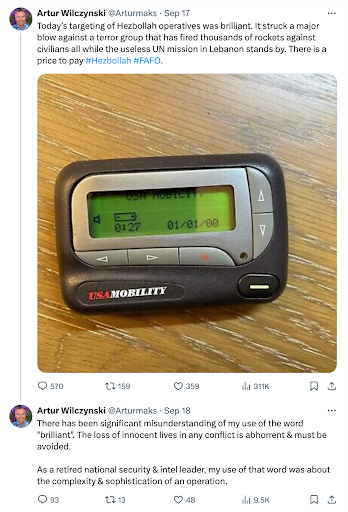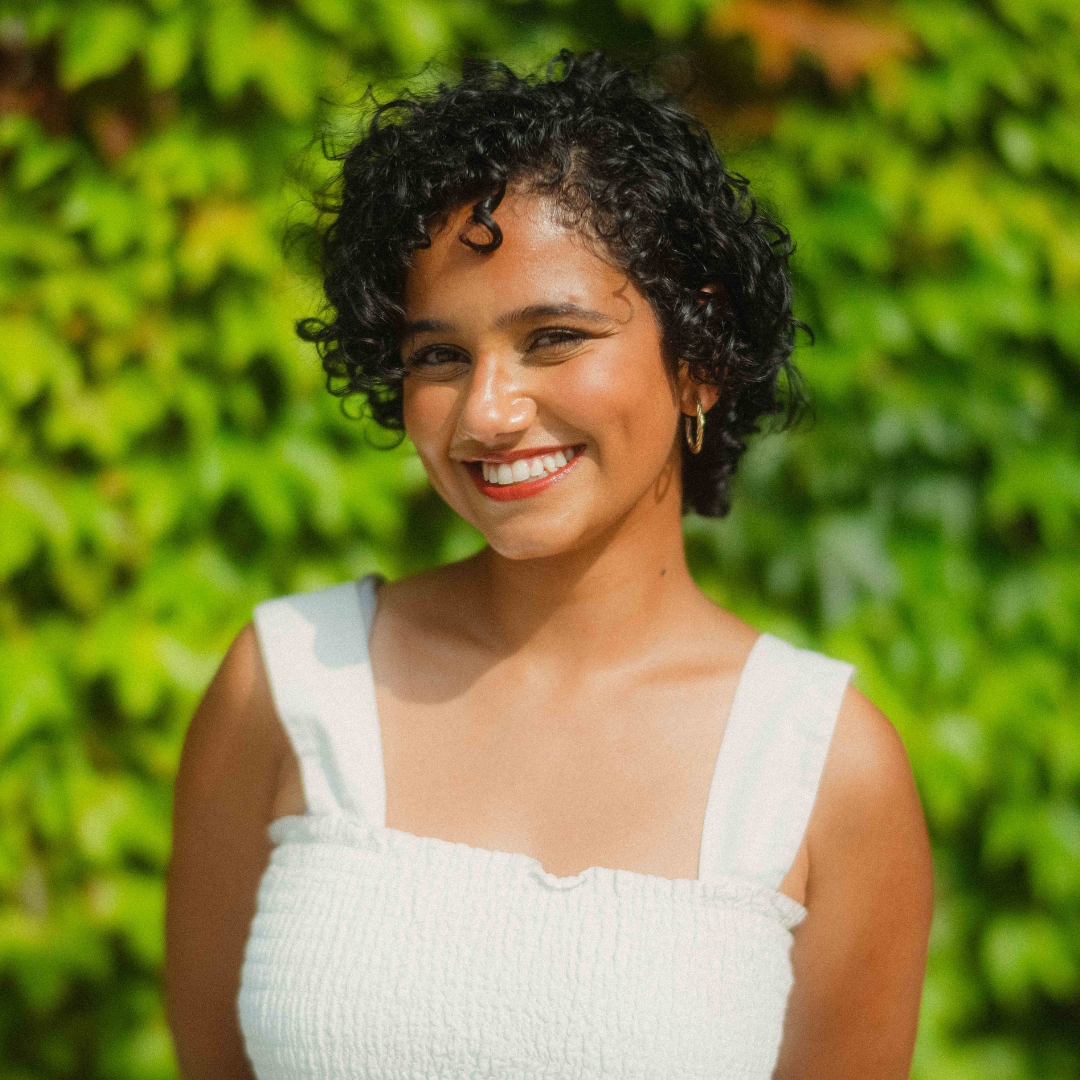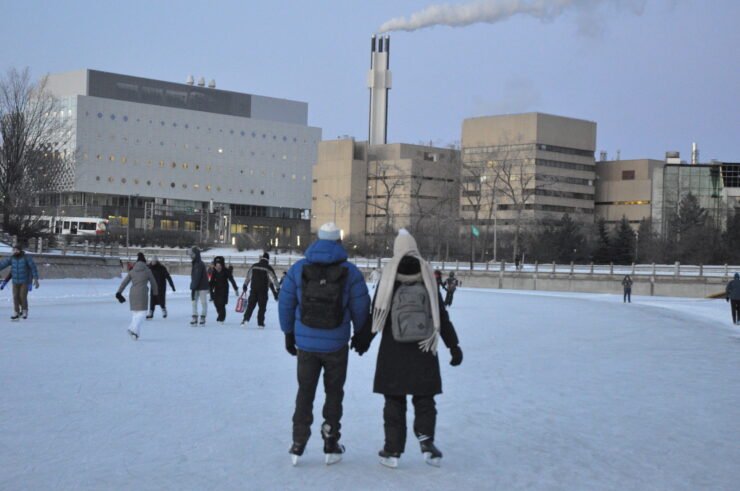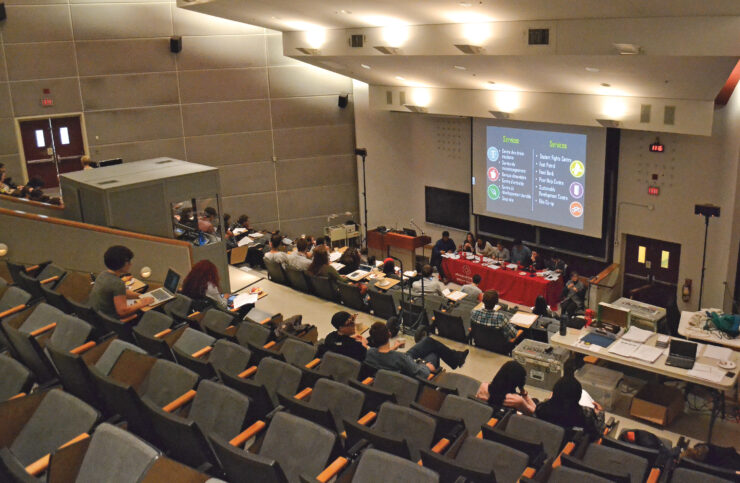ATTACKS ON CIVILIANS AND CIVILIAN INFRASTRUCTURE REIGNITE PROTEST BY STUDENTS AGAINST THE U OF O’S COMPLICITY WITH THE ISRAELI GOVERNMENT
SEPT. 24 – The Ottawa community gathered in front of the Human Rights Monument to protest what was then a week of ongoing indiscriminate attacks in Lebanon by Israel. The most recent round of attacks began on Sept. 17, when explosives planted in 5,000 pagers detonated near simultaneously, killing at least 12 people, including two children, and injuring nearly 3,000 others according to figures released by the Lebanese Health Ministry. The Sept. 17 attack was quickly followed by another series of explosions, this time via walkie-talkies, on Sept. 18, killing an additional 20 people and injuring at least 450.
The attacks, which purportedly targeted members of the Hezbollah group, were indiscriminate in their impact, killing and injuring both civilians and children alike, overwhelming hospitals.
The attack was celebrated by the University of Ottawa’s special advisor on anti-semitism, Artur Wilczynski, in a tweet calling the attack “brilliant.” Wilczynski, who has since resigned from his advisor position after receiving backlash for his comments, defended himself by stating that his remarks were meant to celebrate the “complexity & sophistication of an operation” and not the resulting loss of innocent lives.

“To see the fact that there is a staff member, somebody that was supposed to be fighting anti-semitism on campus at the [U of O] … cheering on these terrorist acts is honestly outrageous, egregious, and horrible to see,” said Ayman Hakimi, a fourth year management and entrepreneurship student at the University of Ottawa, who attended the All-Out-For Lebanon protest.
A statement issued by Israeli defence minister Yoav Gallant on Sept. 18, announced a redeployment of “forces, resources, and energy” towards the Israel-Lebanon border and Hezbollah, signaling a “new phase” in its military campaign.
On Sept. 19, Hezbollah chief, Hassan Nasrallah declared in their statement that they hold Israel “fully responsible for this criminal aggression that also targeted civilians,” promising that until Israel agrees to a ceasefire in Gaza, the group will continue its operations in southern Lebanon, which include firing rockets directed towards military targets located in northern Israel. The risk posed by the firing of unguided rockets has led to the evacuation of 63,000 residents from northern Israel since Oct. 8, 2023.
Nasrallah was assassinated in a bombing campaign targeting civilian areas by Israel on Sept. 27 which leveled 6 residential buildings killing 6 people and wounding 91.
An Israeli official stated that the decision to assassinate Nasrallah was made due to the chief’s refusal to accept any diplomatic solution concerning Lebanon that would not also negotiate an end to Israel’s military activity in Gaza.
Lebanon’s Foreign Minister Abdallah Bou Habib remarked that prior to his assassination, Nasrallah agreed to a temporary 21-day ceasefire after consultation with the Lebanese House Speaker Mr. Nabih Berri, in an interview with CNN on Oct. 3.
“…They told us that Mr. Netanyahu also agreed on the statement that was issued by both presidents [Biden and Macron],” he continued, referring to the ceasefire pushed for by the US and France at the UN during its General Assembly which took place on Sept. 24–27.
Sources from the US, including from the Biden administration, corroborated that Hezbollah had agreed to the ceasefire, however, were not made aware of whether Nasrallah himself had agreed to the ceasefire prior to his assassination.
On Sept. 23, a day before the protest took place, Israel claimed responsibility for more than 650 attacks on approximately 1,600 sites across Lebanon. The Monday airstrikes killed at least 492 people in just 24 hours, wounding at least 1,645, according to Lebanon’s health ministry, marking the deadliest day in the country’s history since the 1975-90 civil war. The death toll included 35 children and 58 women.
Israel’s indiscriminate attacks on civilian infrastructure in Lebanon reflect its policies under the Dahiya Doctrine, named after the Dahiya suburb of Beirut, where an assault by Israel in the summer of 2006 killed at least 1,109 civilians, nearly a third of them being children.
Following the attack, the then-Chief of northern command, general Gadi Eisenkot stated in 2008, “What happened in the Dahiya quarter of Beirut in 2006 will happen in every village from which shots are fired in the direction of Israel … We will wield disproportionate power against [them] and cause immense damage and destruction there. From our standpoint, these are not civilian villages, they are military bases.. This isn’t a suggestion. It’s a plan that has already been authorized.”
As of Oct. 3, ongoing Israeli attacks within Lebanon have killed 1,400 people and have displaced over one million.
“I remember this time last year, seeing the horrific events unfold in Gaza, and just not even knowing what to do,” shared Zoe, a former U of O student at the All-Out-For Lebanon protest. “I felt so helpless. I was honestly appalled by what I was seeing.”
Despite a growing number of staff, students, and faculty being impacted by escalations within the region, the University of Ottawa’s remarks have not expanded any further than its statement released on Oct. 10, 2023 directing impacted members of Israeli and Palestinian communities towards campus support services or the multifaith center.
The University of Ottawa’s stance over the past year is seen by some members of the University of Ottawa student community as a refusal to acknowledge Palestine and Israel’s genocide against the people of Palestine by referring to the conflict as little more than ‘violence unfolding in the Middle East’.
This marks a stark contrast from the U of O’s approach to Russia’s invasion of Ukraine. In March of 2022, the University of Ottawa released a joint statement alongside 21 other universities as part of the U7+ Alliance, an “international Alliance of 50 universities across 20 countries and all continents.” The statement pledged “student aid, assistance with legal obligations, as well as material and psychological support where possible,” while “calling on higher education institutions to mobilize in support of the victims in Ukraine.”
While certain supports for Palestinian students were considered by the University of Ottawa during negotiations with organizers of the student encampment on Tabaret Lawn this past summer, the offers were conditional upon students giving up the majority of their demands made to the U of O alongside the cessation of any ‘disruptions’ on University premises. With the rejection of the U of O’s proposals by student organizers, offers of support were ultimately abandoned.
A statement by the U of O’s president and vice-chancellor, Jacques Frémont, following the encampment encouraged students to make use of the support services offered by the University of Ottawa’s Health and Wellness Centre.
“My university is complicit,” remarked Philippa, another student protester, “so everyday I’ll be protesting against them, protesting against my government, and demanding justice for everyone.” She finished her statement harkening back to the failed negotiations between the University of Ottawa and student organizers from INSAF during student encampment: “disclose, divest, and free Palestine.”







